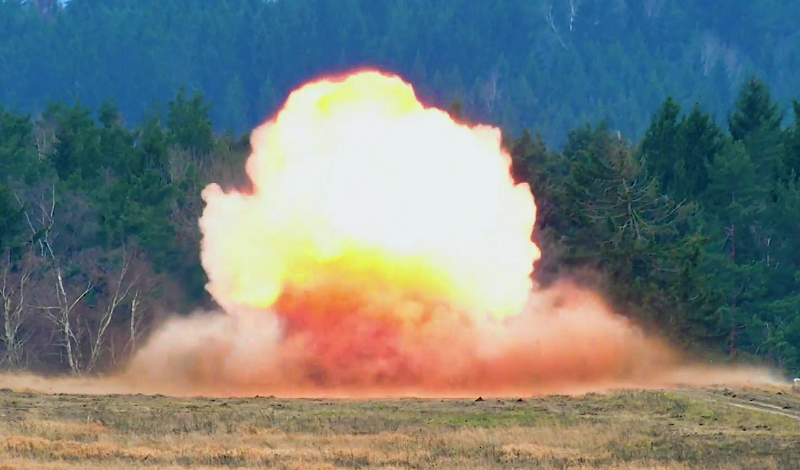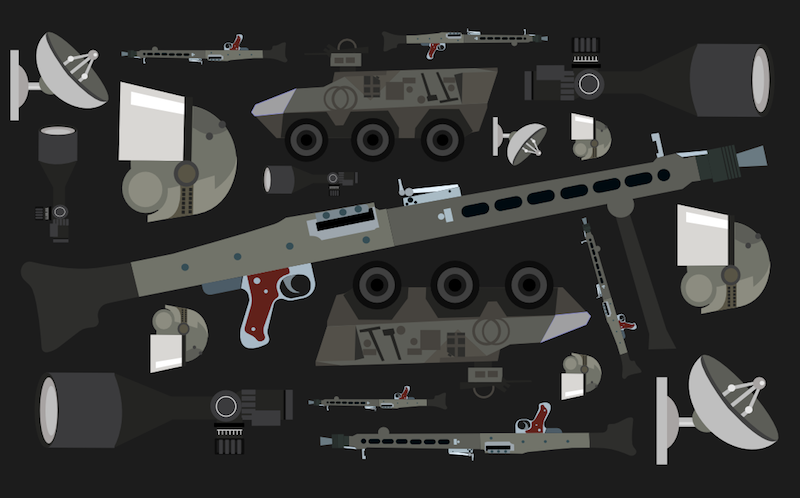Get the weekly SPARTANAT newsletter.
Your bonus: the free E-Book from SPARTANAT.

Armament in Austria: Do weapons create peace?
Weapons and the arms industry have a negative reputation in society. This research explores the significance of the arms industry in Austria and the philosophical debate on weapons and peace. Structural changes in the arms trade and Austria's role in the international arms market are also discussed.
Weapons have a bad reputation. Weapons kill, wars are fought with weapons, dictators use weapons to suppress their own population. That weapons are also necessary to enforce the monopoly on violence of the democratically legitimate constitutional state, that they are necessary to protect the lives of the defenseless, is also true, but plays a subordinate role in the societal discourse on the topic of weapons. ADDENDUM researched the significance of the arms industry in Austria.
The bad reputation of weapons goes hand in hand with the bad reputation of the arms industry. Those who manufacture and sell weapons, those who deal in weapons, are doing business with death and evil. The arms trade is considered the domain of organized crime, and even in cases where legal transactions occur between official manufacturers and democratic states, corruption is seen as an integral part of the process.
Si vis pacem, para bellum
All for good reasons: Many of these assessments are based on societal knowledge and experience. Austrian experiences range from Noricum to Eurofighter, and internationally from the Iran-Contra affair to the North Korean nuclear program.
The philosophical discussion about the relationship between weapons and peace is also old: "Si vis pacem, para bellum," says the Latin proverb: If you want peace, prepare for war. As an alternative, free trade, which is also grappling with image problems, has been seen: Where money flows, there is no blood, argue free trade proponents.
 The Addendum team, consolidated in the "Im Kontext" report, has also addressed these fundamental questions, but especially the role of small, neutral Austria in the international arms trade. For the first time, the Austrian arms exports of the past decade are broken down by type - weapons, transport, equipment - and by company and placed in an international context.
The Addendum team, consolidated in the "Im Kontext" report, has also addressed these fundamental questions, but especially the role of small, neutral Austria in the international arms trade. For the first time, the Austrian arms exports of the past decade are broken down by type - weapons, transport, equipment - and by company and placed in an international context.
Structural change in the arms trade
The research results reveal an interesting structural change: The traditional industrial production of heavy weapons and heavy equipment - cannons, tanks, armored vehicles - declined steadily in the 1990s, perhaps also as a result of the Noricum scandal. However, by the late 1990s, niche producers began to establish themselves alongside well-established producers of firearms on the world market - Glock pistols, the Sturmgewehr by Steyr Mannlicher.
One of the surprising results: While Germany ranks among the big players in the global arms market in absolute production and sales numbers, Austrian companies generate about the same amount of revenue from arms exports as their German neighbors when measured by population.
Particular attention was naturally given to the question of how seriously neutral Austria, which has one of the strictest arms export regimes in the world, adheres to its own rules. Whether these export regulations, which govern exports to warring and human rights problematic states, are actually being followed. The answer is expectedly a resounding Yes, but.
Addendum article series on Austria's role in the arms market:
The introduction on SPARTANAT: Austria's Role in the Arms Trade: Do Weapons Create Peace?
Part 1: ...
More to come ...
This article was first published on ADDENDUM. Copyright Text: ADDENDUM. Image & Video: ADDENDUM.
ADDENDUM on the Internet: www.addendum.org
SPARTANAT is the online magazine for Military News, Tactical Life, Gear & Reviews.
Send us your news: [email protected]
Ad
similar
Get the weekly SPARTANAT newsletter.
Your bonus: the free E-Book from SPARTANAT.


